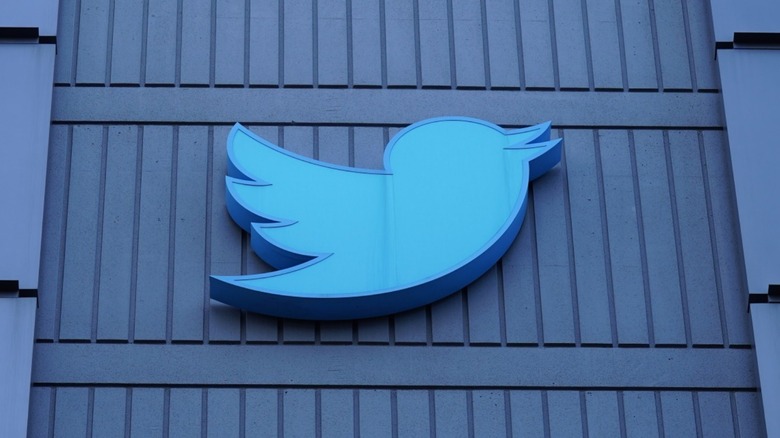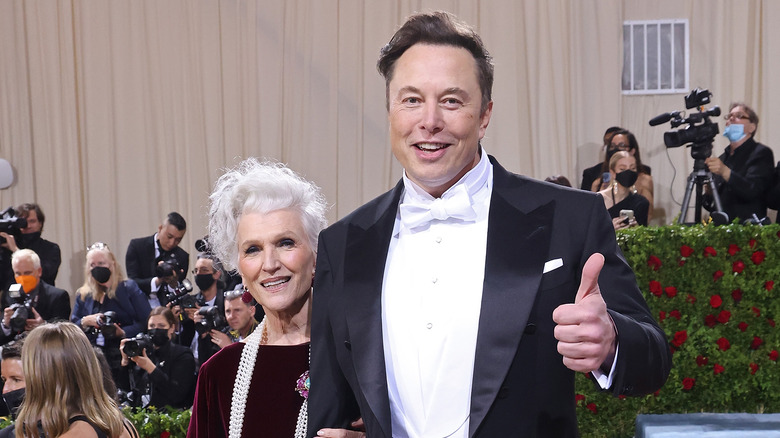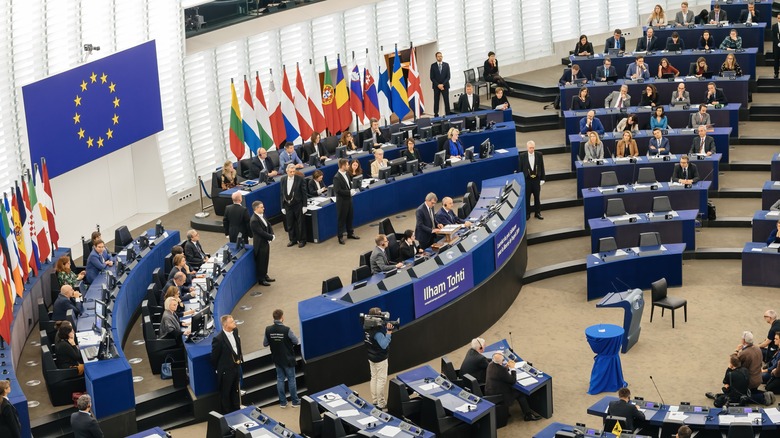Twitter's New CEO Is Who Everyone Suspected
Elon Musk has finally completed his takeover of Twitter, bringing to an end a legal saga stretching back to April this year. The takeover was completed late on Thursday and Musk wasted no time implementing some of the sweeping changes he has planned for the platform.
The social media network cost Musk a total of $44 billion. Musk intends to rework the website's rules, turning it into what he calls a "free speech platform." Musk's vision is obviously going to take some time and effort to implement, and the billionaire has apparently already chosen the individual who is going to oversee it all. If you're familiar with Musk, his other companies, and his business history, his choice of executive probably won't surprise you.
The restructure of Twitter's board is probably the least surprising turn of events in the whole saga, especially considering Musk's relationship with Twitter's outgoing CEO Parag Agrawal. Argawal was initially skeptical about Musk's intentions when the billionaire revealed himself to be the company's biggest shareholder earlier this year. As negotiations dragged on, then degenerated into a legal battle, the pair engaged in a public war of words. One of the odder moments involved Musk publicly challenging Argawal to a debate about the number of active bots on the platform.
What happened to Twitter's old CEO?
Musk wasted no time in making some major changes, immediately firing several leading Twitter board members. According to The Washington Post, chief executive Parag Agrawal, chief financial officer Ned Segal, and head of legal policy Vijaya Gadde were all relieved of their positions shortly after the takeover was completed. It isn't all bad news for the fired executives, as according to MorningStar, the three stand to make around $204 million between them from the takeover.
That figure is based on the number of Twitter shares they own combined with a "golden parachute" clause that was negotiated as part of the takeover deal. The trio own around 1.2 million shares of Twitter which totaled $65 million at the time of the takeover's completion. Vijaya Gadde owns around half of those shares, and is set to receive just shy of $35 million from that alone. The three also receive an additional $120 million worth of stock as part of the golden parachute clause, with chief Executive Parag Agrawal receiving the largest share of that, amounting to around $56 million. Although minor in comparison, the three are also entitled to an extra year of their base salary and health benefits.
While the three executives have undoubtedly benefited from the takeover, the majority of Twitter's remaining staff may not be so lucky. Originally, it was reported that Musk was preparing to lay off around three quarters of the company's staff, though a more recent Bloomberg report claimed that may not be the case. Still, Twitter's current board will be replaced with a new one when the company goes private, including a new CEO. And if you look at Musk's business history, there's one obvious candidate for chief executive.
Musk will probably make himself Twitter's new executive
Perhaps unsurprisingly, Elon Musk is probably going to make himself the new CEO of Twitter (via Bloomberg). The billionaire is known for taking charge of the companies he owns, and currently serves as the executive of Tesla, The Boring Company, and SpaceX. While the new role could mean an increase in Musk's personal responsibilities, it may not have too much of an impact on his schedule. According to Investopedia, a CEO's main responsibilities include "making major corporate decisions, managing the overall operations and resources of a company," and "serving as the public face of the company."
The management of Twitter's day to day operations may be delegated to other company officials. There's a good chance his role will involve outlining his vision for the social media platform, and having other board members and levels of management implement it. As Twitter's owner, Musk doesn't have to please shareholders, is free to appoint himself, and can only really be "fired" by himself. And as far as being the "public face" of Twitter goes, the billionaire's extrovert personality and the contents of his pre-takeover Twitter timeline suggest — a desire to be seen as the man who brought free speech to the masses may be the reason Musk spent $44 billion on the company in the first place. Bloomberg's unnamed source suggests that Musk may eventually pass the position onto someone else, but at the start, at least, it sounds like Musk will be taking the reins himself.
Even as CEO, Musk's power isn't limitless
Although he both owns and operates the company, Musk still may not be able to do what he wants with the platform. While he hasn't got a mob of shareholders ready to oust him if his vision doesn't align with theirs, there are still a variety of laws he has to abide by. Because Twitter is an international platform, and legally allowed speech varies from place to place, Musk could struggle to implement his vision without being hit by various fines and even bans. One piece of legislation he could fall foul of is the European Union's upcoming Digital Services Act. The act is quite complex and far-reaching, but it does aim to tackle the spread of "misinformation," which is a worry many people criticizing Musk's plans shared.
Equally, threats to Twitter's ability to turn a profit is another consideration that may make Musk tone down his vision. Shortly before the takeover happened, Musk tweeted an open letter to advertisers giving more details on his plans, lauding the benefits of targeted ads, and promising not to turn the platform into a "free-for-all hellscape, where anything can be said with no consequences." Mainstream advertisers tend to be put off by controversy and platforms that host what many would consider extremist content. Just as Kanye West is currently losing business due to his use of controversial rhetoric (via The Washington Post), Twitter may also feel the pinch if it is seen as a platform closer to 4Chan than Fakebook. As the only person who can remove Musk is Musk himself, he could actually attempt to ride out any financial turbulence. But even the world's richest man can only afford to lose so much.



